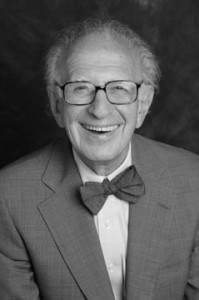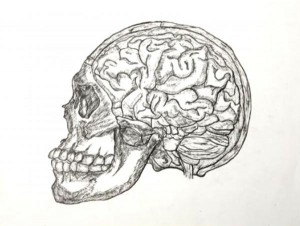In a tour de force of preemptive reductionism, neuroscientist Eric Kandel asserts that the mind is simply “a set of operations carried out by the brain.” Like all reductionism, that is undeniably true up to a point, but beyond a point it becomes a reductio ad absurdum.
 In direct language, Kandel describes the stealth coup neuroscience is staging over philosophy: “Our generation of scientists are translating abstract philosophical questions about mind into the empirical language of biology.” Not so fast. What they’re actually doing is raising the old philosophical questions in a new way, while hubristically believing they’re answering them.
In direct language, Kandel describes the stealth coup neuroscience is staging over philosophy: “Our generation of scientists are translating abstract philosophical questions about mind into the empirical language of biology.” Not so fast. What they’re actually doing is raising the old philosophical questions in a new way, while hubristically believing they’re answering them.
Indeed, neuroscientists are bringing to a head one of the oldest and most difficult questions of all: What is the mind?
In his speech receiving the Nobel Prize for Physiology or Medicine in 2000, Eric Kandel said he accepted the award for taking “the first steps in linking mind to molecules.” Fair enough, if you use the circular logic that the mind is only the “set of operations carried out by the brain.”
Filling in his self-fulfilling circle, Kandel says that the brain “is an astonishingly complex computational device that constructs our perceptions of the external world, fixes our attention, and controls our actions.”
That’s undeniably half true, but like all half-truths, it’s deeply misleading. I would argue that accepting Kandel’s definition of mind denies another meaning altogether of mind, and limits the capacity of the brain.
Reductionism is the right principle for science, but not for life and living. Life cannot be reduced to its constituent parts, because life is not formed out of constituent parts.
Diversity arises from wholeness, not from particularity. The notion that life can be reduced to its ‘basic building blocks’  is a fundamental confusion of many scientists, who project the basic premise of thought—separateness—onto the whole universe.
is a fundamental confusion of many scientists, who project the basic premise of thought—separateness—onto the whole universe.
What is the distinction between mind-as-thought, and mind without thought? That distinction, in practice rather than theory, makes all the difference, not just to philosophy of mind, but in how to live.
The meditative state is a radically quiet mind, a mind not engaged in thinking and thought. Therefore it is qualitatively different than the mind-as-thought, which is continuously generating and associating memories.
Consequently, and without setting up another duality, we must be clear about which kind of mind we’re talking. (There is no duality, since when the mind-as-thought is negated, the awakened mind comes into being.) Kandel and other neurobiologists are investigating the mind-as-thought. The mind in meditation cannot be reduced.
Science obviously has its place in human life, but science is not the be-all and end-all of life. Science may the highest use of thought, but science leaves off with the silent and empty mind. A deeply quiet mind has no meaning for science, and as human beings, we need to see the existential (as opposed to extensional) limits of science.
In scientific terms, the operating system that runs the machinery of thought in the brain is the observer, thinker and self. Therefore the first thing to question and observe is the observer itself. Ironically, neuroscience is demonstrating that the supposedly separate observer and permanent self are a fiction, a trick the brain devised to process, organize and control information stored in memory.
 Ending the operation of the separate observer within oneself is the beginning of meditation. By watching the watcher, the ancient habit of separation ends, attention grows and awareness quiets both the useful and useless content of consciousness. One observes the flow of thought and emotion directly as they arise, without division, and in doing so, the mind grows still and the heart grows peaceful.
Ending the operation of the separate observer within oneself is the beginning of meditation. By watching the watcher, the ancient habit of separation ends, attention grows and awareness quiets both the useful and useless content of consciousness. One observes the flow of thought and emotion directly as they arise, without division, and in doing so, the mind grows still and the heart grows peaceful.
At that point, if one is fortunate, the deeply silent mind comes into contact with something that can only be called sacred. But that quality of otherness only comes with the complete and unforced stillness of mind-as- thought.
The green waters of the reservoir are like glass. On the surrounding ridges, motionless pines tower over the man-made lake, and reflect off the surface of the water with mirror-like sharpness.
There isn’t a trace of a breeze. It’s so quiet that you can hear footfalls across an inlet a quarter mile away. The place is an echo chamber for the cosmos. Listening intensely, one’s mind grows completely quiet, and the sacred is felt.
All sound occurs in silence, but we rarely ‘hear’ the silence because the inner and outer noise of man is so dominant. Clearly, the perception and reception of the sacred call for a very still, empty mind.
One realizes, during moments of contact with this otherness, that it exists and is complete in itself. But we are finite creatures, the products of cosmic and planetary evolution. And as far as life forms of the universe go, the awakening of the sacred requires a conscious brain with a deeply quiet mind.
Martin LeFevre

